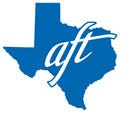School calendar options have caused an uproar
A lot of school employees have been in an uproar about headlines announcing possible changes to school calendars for next year. Let’s get one thing out of the way up front: no one is asking you to work more days for the same pay! There’s a lot of sneaky or blatant ways districts add more work for the same pay, but the use of “extended instruction” and “year-round school” isn’t one of them.
Here’s a recap of what TEA has done and what the options are for districts. And remember, what TEA has presented is all optional.
I’m going to concentrate here on the “year-round school” notion, what formally is referred to as Year-Round Education (YRE). First, there is no set schedule for what constitutes year-round, and some districts that claim to be are far from truly living up to that description. Take Socorro ISD, for example, which more resembles what TEA is describing as an intersessional break model.
The district calendar for next year includes instruction beginning at the start of August. Then there’s a two-week break in October, the Thanksgiving week break, the typical two-plus-week break for winter holiday, then a two-week spring break in March instead of one. Then June and July are a summer break. (Obviously teachers work some on the endcaps of these breaks; thus there are 175 instructional days and 187 teacher days.)
Having two months off in the summer doesn’t necessarily fit a strict definition of year-round, although it qualifies for TEA’s list of year-round schools. The district has just stuck an extra three-plus weeks of intersessional breaks into the fall and spring so that they can get rolling at the start of August.
Now take a look at Tuloso-Midway ISD’s calendar from this year, which uses a variety of breaks and the month of June off, but more closely fits year-round. Only a handful of districts use YRE. (This list is old and not accurate, but it gives you an idea.)
Districts that adopt a year-round schedule have wide latitude on how to schedule instructional days. Other districts traditionally were bound to law requiring a start date no earlier than the fourth Monday in August. That stipulation was a compromise between advocates for starting much earlier in August and those wanting to start after Labor Day. But a majority of districts have adopted District of Innovation status to allow for earlier start dates; essentially they told the state to back off and let them develop their own calendars.
I’m not going to go into the benefits and drawbacks of extended breaks and year-round schools; there are numerous pros and cons. With its latest presentations, TEA seems to be saying that with possible disruptions due to the pandemic, districts do have options for restructuring their calendars. Longer breaks in the traditional year could provide a buffer to help stunt infection spread. The next logical step in their thinking is that if a mandatory shutdown closed schools when instruction was supposed to take place, districts could then reschedule instructional time during what would have been breaks.
With regard to “extended instruction,” here’s the explanation toward the bottom of this article. And again, that doesn’t mean teachers working more with no pay.
Now that I’ve stressed that you won’t be working more hours for the same pay, let me also caution that this could change with legislation. (The next legislative session starts in January.) It’s not likely that you would see any lawmaker dumb enough to just try and tack more days on your contract. More possible could be a jumble of rules around virtual instruction during shutdowns that don’t account for how much time teachers spend on this work — or even worse, furloughs instituted from the economic crisis that could take advantage of flexible calendars. We’ll be there to watch at every step to make sure no one takes advantage of a bad situation to make your professional life worse.
By Rob D’Amico, Texas AFT Communications Director
(Follow on Twitter @damicoaustin and @TexasAFT)
